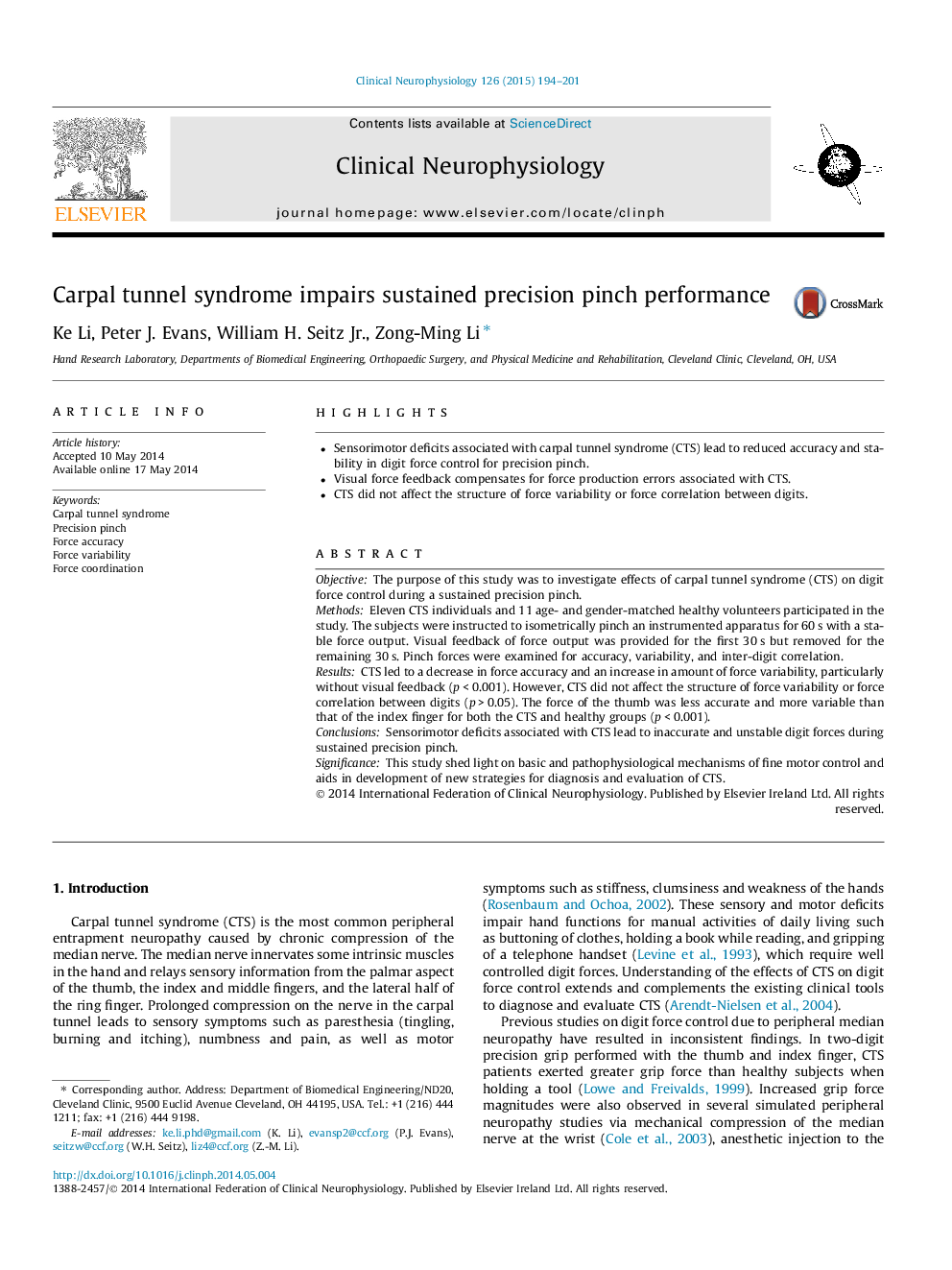| Article ID | Journal | Published Year | Pages | File Type |
|---|---|---|---|---|
| 3043227 | Clinical Neurophysiology | 2015 | 8 Pages |
•Sensorimotor deficits associated with carpal tunnel syndrome (CTS) lead to reduced accuracy and stability in digit force control for precision pinch.•Visual force feedback compensates for force production errors associated with CTS.•CTS did not affect the structure of force variability or force correlation between digits.
ObjectiveThe purpose of this study was to investigate effects of carpal tunnel syndrome (CTS) on digit force control during a sustained precision pinch.MethodsEleven CTS individuals and 11 age- and gender-matched healthy volunteers participated in the study. The subjects were instructed to isometrically pinch an instrumented apparatus for 60 s with a stable force output. Visual feedback of force output was provided for the first 30 s but removed for the remaining 30 s. Pinch forces were examined for accuracy, variability, and inter-digit correlation.ResultsCTS led to a decrease in force accuracy and an increase in amount of force variability, particularly without visual feedback (p < 0.001). However, CTS did not affect the structure of force variability or force correlation between digits (p > 0.05). The force of the thumb was less accurate and more variable than that of the index finger for both the CTS and healthy groups (p < 0.001).ConclusionsSensorimotor deficits associated with CTS lead to inaccurate and unstable digit forces during sustained precision pinch.SignificanceThis study shed light on basic and pathophysiological mechanisms of fine motor control and aids in development of new strategies for diagnosis and evaluation of CTS.
